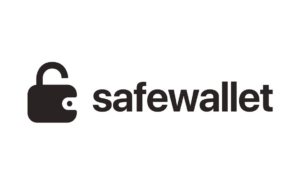In the dynamic world of cryptocurrency, the diverse offerings of Curve DAO Token (CRV), Arweave (AR), and ApeCoin (APE) stand out. They’re not just digital assets; they represent unique visions of blockchain’s potential. CRV’s role in decentralized finance (DeFi), AR’s mission to create a collective memory of the internet, and APE’s connection to the burgeoning NFT community each tell a story of innovation and ambition.
Investors and enthusiasts alike are keen to understand the nuances between these tokens. Each brings a different flavor to the table, and deciphering their value propositions is crucial for those looking to diversify their portfolios. Let’s dive into the distinctive features and use cases that set CRV, AR, and APE apart in the crowded crypto landscape.
Curve DAO Token (CRV)
Curve DAO Token (CRV) is the powerhouse behind Curve Finance, a DeFi exchange optimized for stablecoin trading. CRV operates on an ingenious automated market maker (AMM) protocol, designed to minimize slippage and provide efficient trading.
CRV differentiates itself with dynamic pools that adjust based on the liquidity of specific stablecoins. This ensures consistently competitive rates for traders. Participating in the Curve pool also generates trading fees and interest for liquidity providers.
The token serves as a governance vehicle, allowing holders to vote on important decisions within the network. As an incentive, staking CRV provides yield payouts, solidifying its use case in the DeFi landscape.
With Curve’s governance, liquidity providers can propose and vote on changes, which includes altering parameters or introducing new pools. This level of control is pivotal for the protocol’s adaptability and growth.
Arweave (AR)
Arweave’s fundamental principle is to offer a permanent data storage solution on its blockchain-based platform, known as the blockweave. Unlike traditional blockchains, Arweave’s blockweave allows each new block to be linked to both the one immediately prior and a random earlier block, creating sustainable data storage.
The platform operates on a proof of access consensus mechanism which requires miners to access old data as part of the mining process. This ensures that data is regularly recalled, therefore confirming its availability. Arweave differs from other data storage blockchains in its novel approach to data permanence, positioning it apart from transient storage solutions.
Arweave’s practical applications are vast, ranging from decentralized web hosting to the creation of a collective memory of the internet. Challenges include ensuring scalability while maintaining data integrity. Future trends may involve greater integration with other decentralized systems.
With AR tokens, users pay miners to add data to the network, creating an economy for data storage. The AR token operates differently from cryptocurrencies like CRV, which are used for governance and yield in DeFi, or APE, which is utilized within the NFT community.
ApeCoin (APE)
ApeCoin, an ERC-20 token, spearheads participation and governance in Ape Ecosystems. It empowers holders with ecosystem governance and access to certain parts of the ecosystem that are otherwise unavailable. Built on Ethereum, ApeCoin bolsters decentralization and community involvement.
Founded by APE Foundation, it’s devised to be a decentralized protocol layer for community-led initiatives that drive culture into the metaverse. At the helm, bringing utility and governance, ApeCoin is a cornerstone of digital collectible space, especially for entities like Bored Ape Yacht Club.
Unlike CRV and AR, APE’s focus isn’t on DeFi or data storage but on creating a vibrant culture and upholding the value across NFT communities. It ties closely to digital assets and entertainment.
Within the ApeCoin realm, DAO stands solid, letting token holders shape the future by proposing and voting on decisions. This level of engagement is unparalleled in other cryptocurrencies, linking ownership directly with decision-making rights.
| Feature | Curve DAO Token (CRV) | Arweave (AR) | ApeCoin (APE) |
|---|---|---|---|
| Primary Use | Decentralized Finance | Data Storage | Governance & Culture |
| Network | Ethereum | Blockweave | Ethereum |
| Governance | DAO | Less formalized | DAO |
| Associated with NFTs | No | Some use cases | Major Focus |
| Consensus Mechanism | Ethereum based | Proof of Access | Ethereum based |
| Market Capitalization * | $1.5 billion | $500 million | $2 billion |
*Market capitalizations are as of a recent point in 2023 and subject to change with market conditions. Prior to making any investment, readers should conduct their own research.
To explore ApeCoin further, visit their official website or review their governance framework.
Differentiating Features and Use Cases
The blockchain landscape is ever-evolving, and cryptocurrencies like Curve DAO Token (CRV), Arweave (AR), and ApeCoin (APE) highlight this dynamism through their distinct features and applications.
Curve DAO Token (CRV)
- Decentralized finance innovator
- Provides liquidity using an Automated Market Maker.
- Enables efficient stablecoin trading with low slippage.
Arweave (AR)
- Tackles information permanence.
- Stores data on a decentralized network for generations.
- Acts as a backbone for the permaweb.
- Serves as a cultural token within the Ape Ecosystem.
- Offers governance, promoting community-led initiatives.
- Facilitates transactions in the NFT marketplace.
Each token demonstrates its unique prowess, positioning within the blockchain ecosystem, and distinctive use cases impacting various industries and communities.
Conclusion
Deciding between Curve DAO Token, Arweave, and ApeCoin hinges on one’s investment goals and interest in the crypto space. Whether it’s CRV’s integral role in DeFi, AR’s dedication to a permanent web, or APE’s cultural resonance in the NFT world, each token offers a distinct value proposition. Investors and enthusiasts must weigh these tokens’ unique features and potential impact on their respective ecosystems. As the blockchain landscape continues to evolve, CRV, AR, and APE stand out for their innovative contributions to the industry, each carving out their niche and shaping the future of digital assets and decentralized applications.
Frequently Asked Questions
What is Curve DAO Token (CRV) primarily used for?
Curve DAO Token (CRV) is predominantly used within the decentralized finance (DeFi) space to facilitate and incentivize liquidity provisioning on the Curve platform, which is an exchange expressly designed for stablecoin trading.
How does Arweave (AR) aim to impact the internet?
Arweave’s (AR) mission is to create a permanent, collectively owned archive of the internet, preventing information loss and ensuring data permanence through its novel data storage blockchain protocol.
What is the significance of ApeCoin (APE) in the blockchain space?
ApeCoin (APE) signifies a key component of governance and community engagement in the Ape Ecosystem, fostering a vibrant culture and sustaining value in the NFT community through its association with digital assets and entertainment.
Can you explain APE’s connection to NFTs?
APE is tightly associated with Non-Fungible Tokens (NFTs) as it forms a part of the Ape Ecosystem, which is known for its popular NFT collections like Bored Ape Yacht Club, and it functions as a medium of exchange and governance within these communities.
What makes each of the mentioned cryptocurrencies unique?
Each cryptocurrency has its own distinctive vision and target market: CRV is focused on enhancing the DeFi landscape, AR is dedicated to data permanence, and APE connects to NFTs and digital culture, each bringing unique features and use cases to the blockchain world.
How do these cryptocurrencies differ in terms of governance?
CRV uses a DAO (Decentralized Autonomous Organization) for governance allowing CRV token holders to vote on proposals, AR has its own governance model centered on its blockweave structure, whereas APE fosters a community-led governance model within the Ape Ecosystem.





